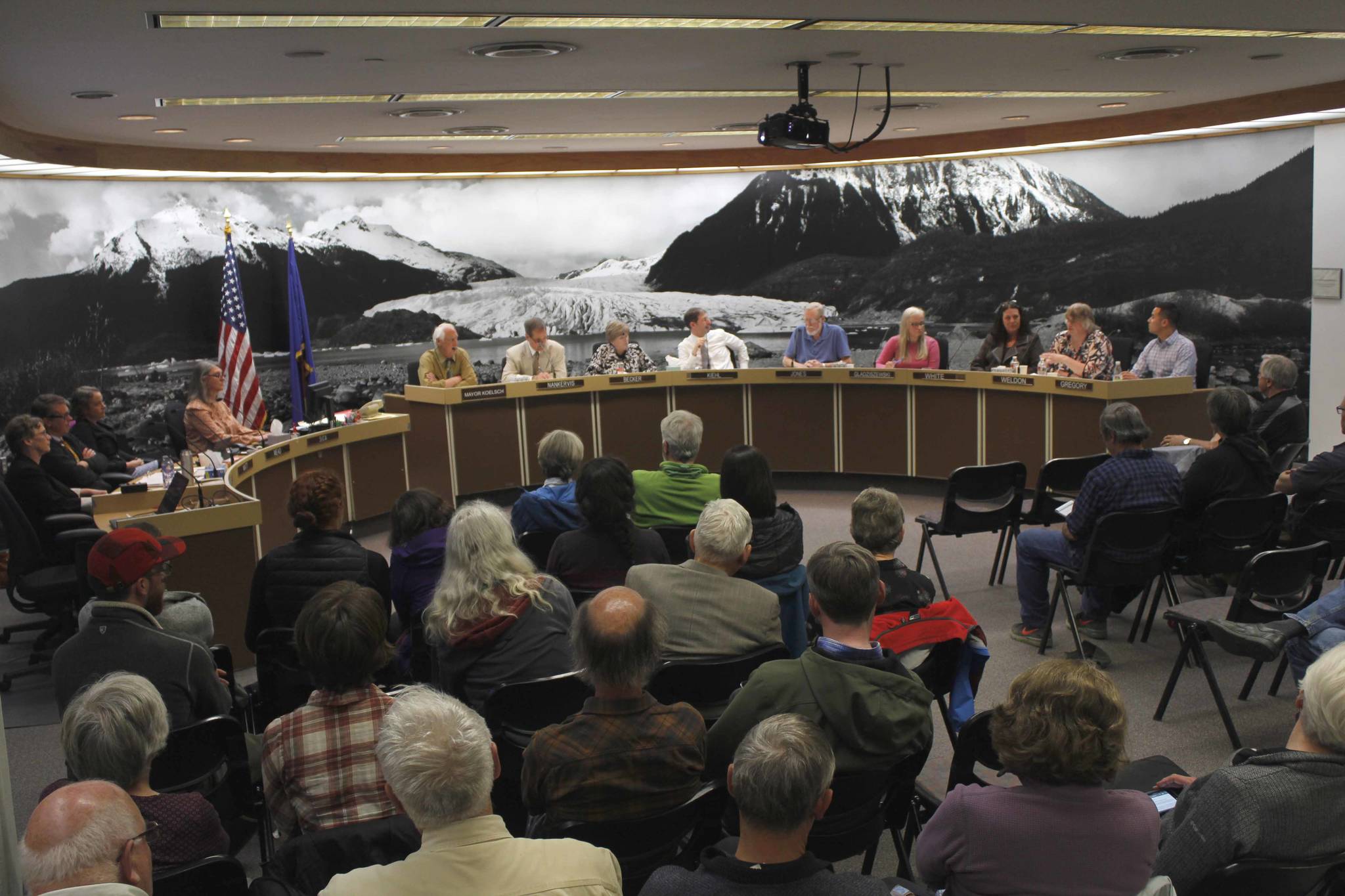An issue that has proven divisive in the Juneau community is proving to be the same way at City Hall.
After City Manager Rorie Watt strongly suggested that the city take its time in considering proposed changes to the city’s mining ordinance, the City and Borough of Juneau Committee of the Whole voted to move a bit quicker.
By a vote of 6-3, the committee voted Monday night to have Mayor Ken Koelsch form a three-person subcommittee to look into the future of mining in Juneau and whether or not the ordinance needs to be revised. The committee would also develop a plan for public involvement in the process.
This subcommittee will eventually add members of the public, but it will start with three Assembly members. Koelsch will select those three and present a plan for the committee at the next CBJ Assembly meeting, June 26.
Assembly member Debbie White, who eventually made the motion after about 45 minutes of discussion, knew that this plan of attack wasn’t going to go through easily.
“I know I won’t get unanimous consent,” White said, “so I won’t bother to ask.”
Watt had suggested both via a memo to the committee and in person Monday that the entire Assembly should be involved in this process. Assembly members Maria Gladziszewski, Loren Jones and Jesse Kiehl agreed with Watt, saying that the entire Assembly needed to be involved in the process and understand the implications of making it easier for a company to open (or reopen) a mine in Juneau.
Since the Alaska-Juneau Mine closed in 1944, there have been numerous discussions about reopening the mine or further pursuing mining in the city limits. A group under the name of Echo Bay Alaska attempted to reopen the mine in the early 1990’s, but mining operations ended in 1997. FBI and EPA investigations revealed that the company leaked chemicals into Gold Creek and had lied about the chemicals it was using.
Gladziszewski, Jones and Kiehl voted against the formation of the three-person subcommittee, hoping to get the whole Assembly to go through the process together and reach a unanimous agreement on how to move forward. Kiehl warned that quickly forming a three-person committee would make it look like the city is trying to “fast-track” this process.
Gladziszewski, who was on the AJ Mine Advisory Committee (AJMAC) in 2011, said that it’s paramount that the city be as united on this issue as possible and that divided votes won’t look good to mining companies that might want to come to Juneau.
“I don’t know what mining firm would want to come in if it’s 5-4 and then a year later it’s 5-4 some other way and then a year after that it’s 5-4 some other way,” Gladziszewski said. “That’s the last message we’d want to give any mine developer. We need to have a broad agreement, and that’s the work of the Assembly, not three folks.”
The Committee of the Whole members at the meeting also disagreed at which issues to address first. Watt argued that the city needs to first consider the conditions under which the city can reopen the AJ Mine before moving forward. Assembly member and chair of the Committee of the Whole Jerry Nankervis disagreed, saying that the city needs to first look at changing the mining ordinance.
The meeting was well attended, with many of the seats filled with members and supporters of the Southeast Alaska Conservation Council (SEACC). Jim Clark and Bill Corbus, who were two of the five men who wrote up the original proposal to change the mining ordinance, were also in attendance. Clark declined to comment after the meeting beyond saying that it’s now time to see what happens with this subcommittee.
Early in the discussion, White repeated a sentiment she’s mentioned recently, saying that she wants the Assembly to be decisive on tough issues.
“I feel that this Assembly needs to grow a backbone and stop caving in to people who think they’re going to force mob rule on this group,” White said. “I believe that we need to start listening to people that are going to make jobs instead of break jobs because right now, the pressure that we’re getting is not necessarily from the majority. They’re just better organized.”
SEACC Executive Director Meredith Trainor said she thought that Kiehl, in particular, showed that backbone during the meeting when he proposed an amendment to put all nine Assembly members on the subcommittee (which was voted down by a 7-2 vote).
Guy Archibald, the Mining and Clean Water Coordinator for SEACC, has been vocally opposed to changing the ordinance and thought Monday’s meeting was another step in the wrong direction.
“I’m very disappointed,” Archibald said. “As emotionally charged as this issue is, as well as environmentally charged, to see it fast-tracked just adds to the divisiveness. As it is, it’s already created an obvious split between the mayor and city manager.”
• Contact reporter Alex McCarthy at alex.mccarthy@juneauempire.com.

